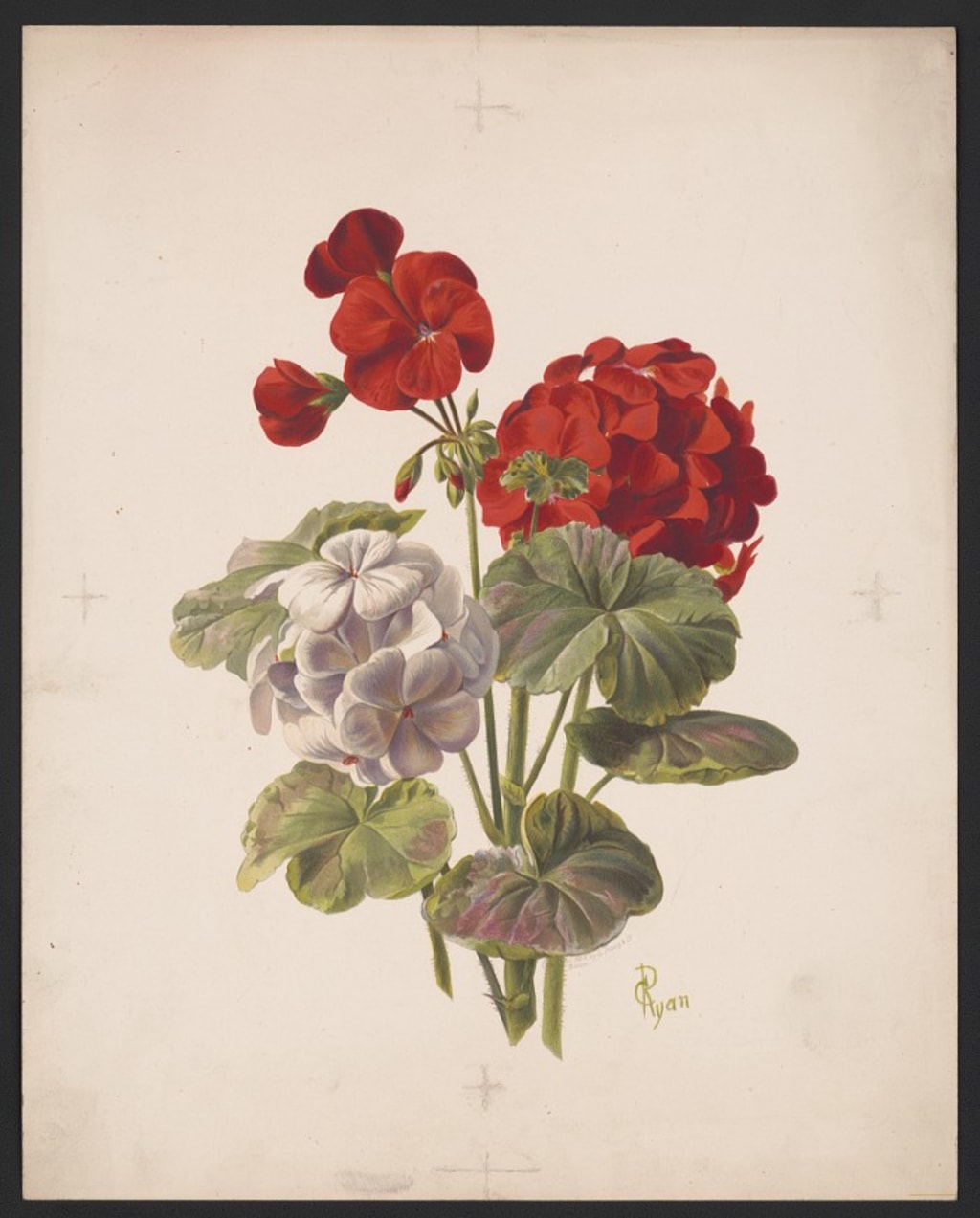The Letter
Passed down for generations, a family’s history beckons to be known

Leggy geraniums splashed their red against the window. Through its panes, May watched streams of students, like bees winging to flowers, crisscross the University green. Ornate sandstone and limestone buildings ringed the oval lawn. Silent, sitting on a hard wooden chair at the end of the professor desk, she waited. With a start, she realized she’d been holding her breath.
Professor James T. Schmidt, Ph.D., French dialect expert, riffled through the papers in her shoebox with the precision and care of an archeologist. Every so often, he’d grunt “huh” or “lookey here.” Finally he’d culled out a stack of letters and placed them on the desk. He left the other ephemera in the box.
May was counting on the man to help solve her family’s decades-old mystery: what did the letters say? Since childhood, she had imagined flowery words of devotion, yearning — and even — lust. Now she would find out.
Her eyes scanned the academic’s walls, soaking in Professor Schmidt’s taste. A 1930s poster touted Valdosta skiing. A swatch of exuberant lace, framed, eyebrowed the bookshelves across from her. Below it perched a carved wood figurine of a girl carrying a basket of eggs. The aroma of old books scented the air. Somehow it felt familiar.
“You’d like me to help you understand what’s here, is that right?” The professor’s kindly face and frank blue eyes encouraged May. Middle-aged, middle-sized, his white underwear filled the vee of his blue oxford cloth shirt and contrasted with his hand-knit cardigan. His pants were corduroy. His shoes were perforated brown wing tips. The man, a marvel of inviting textures, just begged to be touched. His voice brought to mind oak embers, scotch, and pipe smoke.
“Yes, please. I understand you’re one of the few in the States fluent in the French dialects of the Alps. No one in my family has spoken another language since the original immigrants. May gave a little smile, embarassed by her family’s lack of sophistication and worldliness.
“Well, it’s rare I get an opportunity to see this language in full bloom. A lots changed over the years. Two world wars, a Depression, immigration, what was French became Italian… Do you mind if I open one of these letters?”
“Go right ahead. That’s why I’m here. We believe they are love letters between my great great great grandparents. Our family has treasured these for years and taken care of them, even though we had no idea what they said. We aren’t rich and these papers no one can read are the most important thing passed down. Kind of funny.”
“Not funny at all. These are your inheritance. Not everyone is as lucky as you. Tell me what you know about your ancestors.”
The professor began to untie the shredded pink silk ribbon around one packet of letters. His fingers were slender, nimble. His wide gold wedding band reflected a sliver of sunshine.
“Well, what I know is that my great-whatever grandfather Jakob Keller immigrated from Zurich to New York in the 1850s. The family owned silk mills. His job was to represent his father’s business in America. They were all well off and he spoke seven languages. He crossed the Atlantic seven times, ending up married in New York.”
“That’s a lot to know, May. What about his wife?” The professor was placing the letters in order as he listened and lining up the edges. May thought of her disheveled desk back at the dorm.
“Uh, his wife Marie Rosset was from Aosta, you know up in the Alps by the St. Bernard Pass. Story was she used to talk about the big dogs used up there to rescue folks lost in the snow. Her family was in the silk mill business, too. She immigrated to upstate New York with them when she was a teenager. Jakob didn’t do well in the states.”
“Oh, really? How so?”
“All I know is that he ended up poor and working in a factory in the New York town where Marie lived. They married and had five children. I have the children’s birthdates and a lot of information on the child I descend from. I don’t know anything else about Marie and Jakob.”
“How about we start with this letter? It’s the most recent, so might give a hint as to Jakob and Marie’s later years.”
Professor Schmidt picked up a yellowed envelope of heavy paper. A stamp, postmarked 1872, remained in the corner. A mahogany-colored smudge covered the back. Ornate flowery handwriting, complete with flourishes and a crosshatch or two, directed the letter to Jakob Keller, in care of George O’Toole in the village of Carthage, New York.
As he pulled out the folded letter, a fragile tiny newspaper clipping floated down onto the desk.
“Did you know this was in there? It’s in English.”
“No. What’s it say?”
“‘Drunk run over. This past Sunday the ruinous remains of Mr. Jakob Keller of Carthage were discovered by a local farmer on the railroad tracks just north of town.’ Oh, my. I’m sorry to read this. ‘He had last been seen in an inebriated state, singing loudly, walking toward his home which is directly across from where he was found. A collection is being taken for his family by the Catholic Church.’”
“Oh, my gosh. That’s what happened to Jakob? That’s terrible.”
“It appears so, May. Shall I read the letter?”
“Please.”
Professor Schmidt smoothed out the heavy yellowed paper.
“My dear Jakob,” read the Professor. “I am taking the boys and moving to another town. Please don’t try to find us.”
He peered at May over his tortoise shell eyeglasses. He had her rapt attention.
“Oh, I never... Go on, please. Not what I expected. At all.”
“You have been taken from us these past years by drink. I don’t know how to help you stop or if you can even do so. Your drunkenness sets a bad example for your four sons and I need to get them away from your influence. I am so sorry. Do not worry about us. I have arranged for our welfare. God have mercy on you, Jakob. Your loving wife, Marie”
“May, I’m sorry this wasn’t a love letter. Jakob must have had this on his person when he died. We can only guess what happened.Many families suffered from alcoholism in the 1800s. Led to the Temperance Movement, you know. Not many options at the time.”
“Well, I appreciate your help. You’ve let us fill in some blanks in our family history. I’d still be interested in learning what’s in the rest if you have the time.”
“Of course, May. I’d like to know myself. Well, let’s start at the beginning now we know the end…” He reached over and drew the oldest letter and began to read aloud. May sniffed and wiped her cheek.
About the Creator
Diane Helentjaris
Diane Helentjaris uncovers the overlooked. Her latest book Diaspora is a poetry chapbook of the aftermath of immigration. www.dianehelentjaris.com






Comments
There are no comments for this story
Be the first to respond and start the conversation.